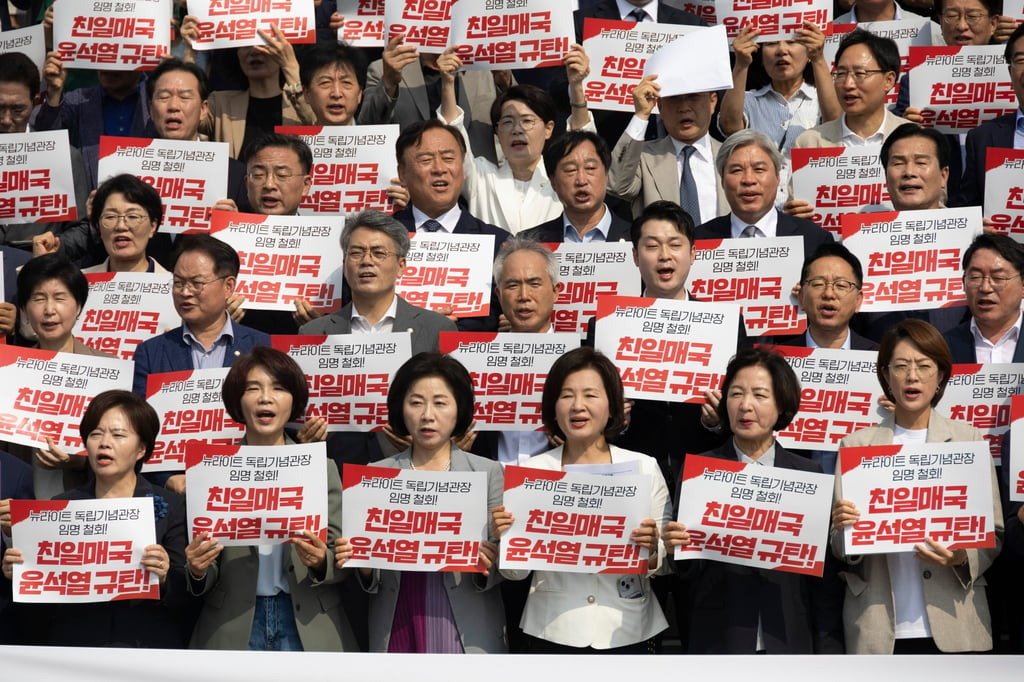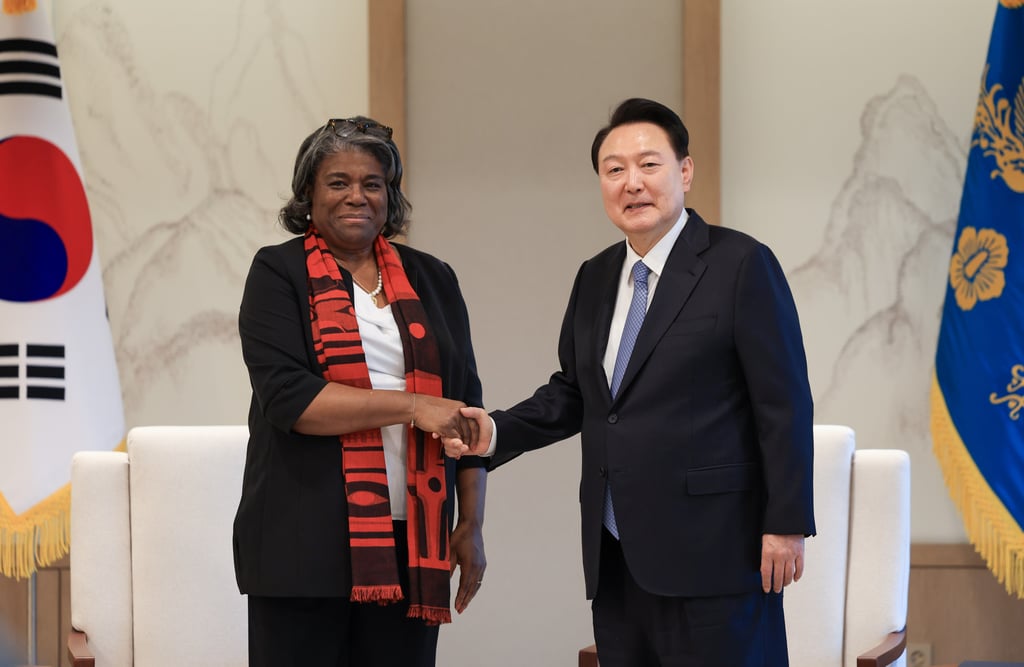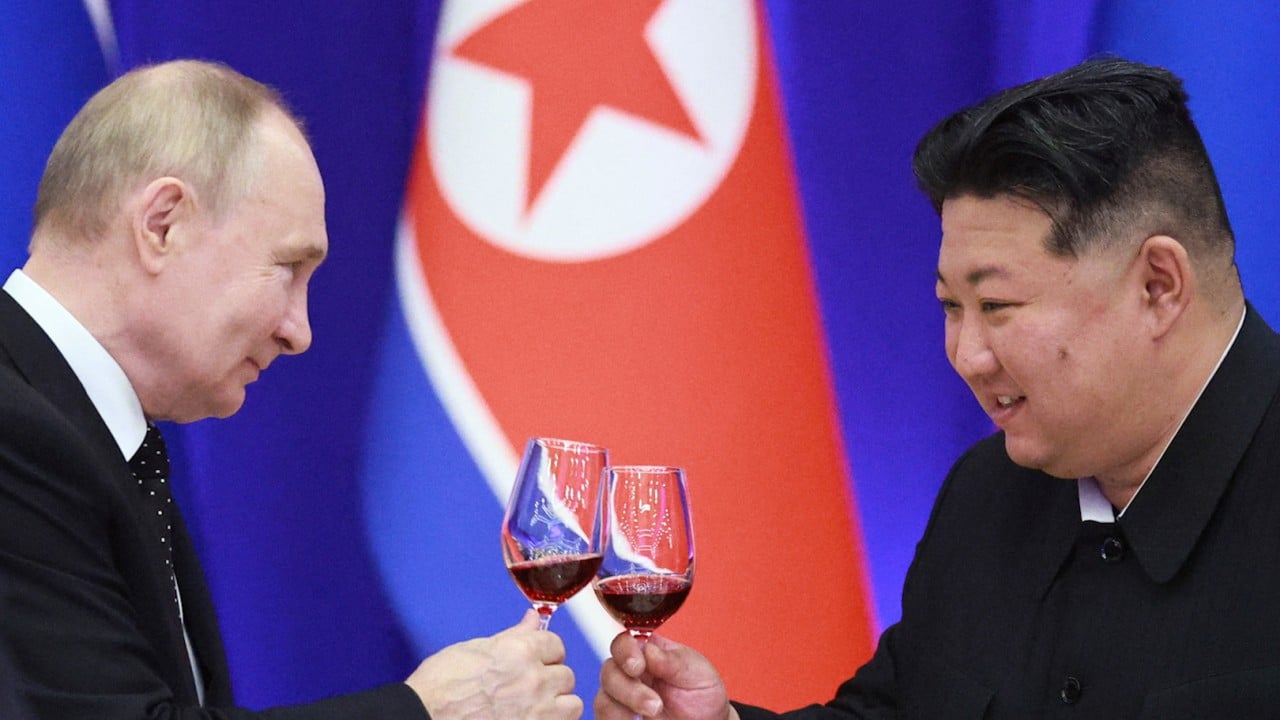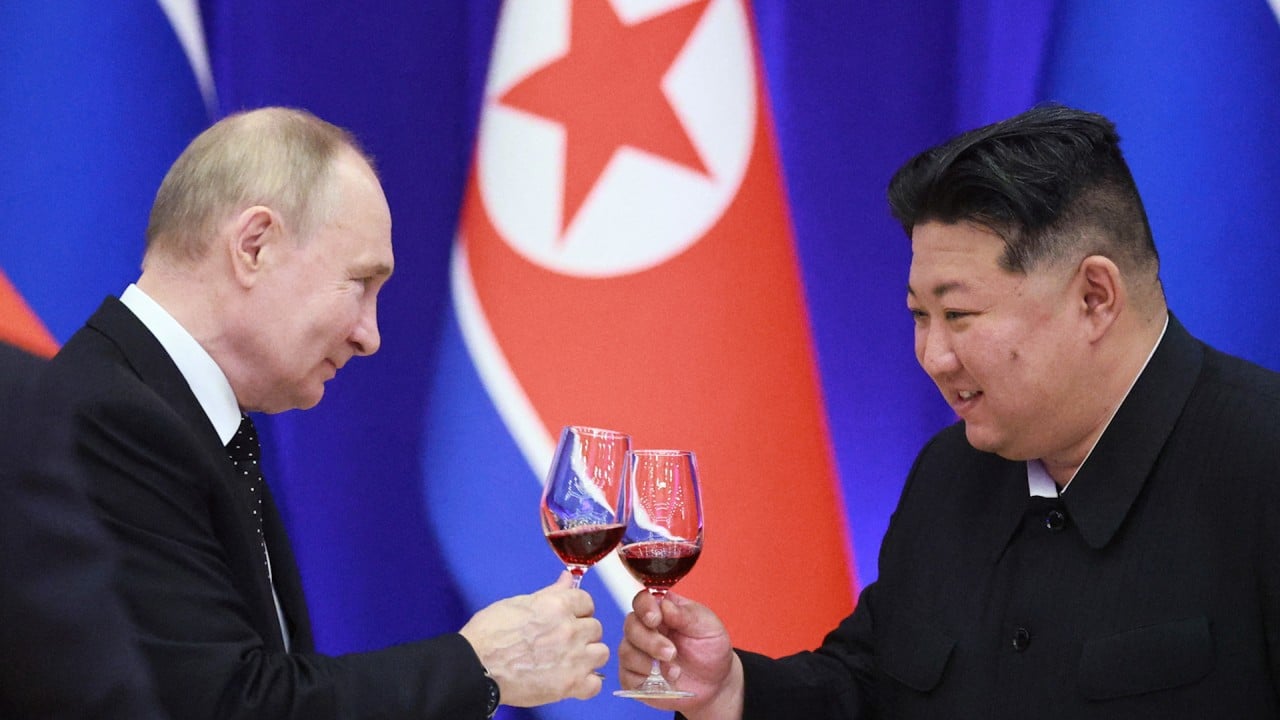Addressing the nation on the 79th National Liberation Day, South Korean President Yoon Suk-yeol unveiled a new unification plan to establish “a unified, free and democratic nation … across the entire Korean peninsula”. Arguing for “complete liberation” through unification, Yoon called for extending freedom and democracy to the “frozen kingdom” of North Korea.
In line with his “audacious” initiative, Yoon said Seoul would begin political and economic cooperation immediately if Pyongyang showed signs of moving towards denuclearisation. However, the unification plan is set to face numerous constraints both domestically and internationally, making the blueprint all the more difficult to implement.
South Koreans hold a central position in the proposed plan. Yoon said the people must possess the values and capabilities needed to pursue freedom-based unification. He also talked about possible people-to-people and cultural exchanges.
However, such a policy would require bipartisan support and a domestic consensus. On the political front, however, South Korea represents more of a “house divided” than united. This political divide between the ruling People Power Party and the Democratic Party of Korea (which leads the opposition) was most clearly visible in the two separate ceremonies held on National Liberation Day.
While Yoon has denounced his political rivals, calling them “pseudo-intellectuals” and “anti-unification forces” who attack the values of freedom, the opposition has expressed anger at the government’s attempts to “distort history” and criticised the influx of the “new right” into key positions.

Any model which seeks to further the idea of a unified Korea must have strong political consensus across the board, something which seems to be missing for the Yoon administration.
Moreover, public support for a unified peninsula is undergoing a steady decline. According to a Korea Institute for National Unification survey, 52.9 per cent of respondents said they believed unification was necessary, the lowest figure since 2020.
A larger cause for concern for the Yoon administration may well be the indifference of millennials towards the unification cause, with only 46.5 per cent of survey respondents viewing it as a necessity. Although Yoon has attempted to clarify his intentions about instilling values that are conducive to unification, the road ahead appears long and arduous.
However, while the administration faces a number of domestic hurdles, the international challenges to unification appear much more formidable. The biggest is, of course, the attitude of North Korea under Kim Jong-un, strengthened in his resolve thanks to improved relations with Russia and China.
The unification plan seems to take a two-pronged approach of both coercion and reconciliation. While Yoon has argued for a peninsula led by South Korea, showing a clear disregard for North Korea’s views, he has also included the establishment of an inter-Korean working group in his plan, to address issues ranging from diplomacy and economic cooperation to disaster relief.
However, the refusal by the North Korean leadership to accept humanitarian aid following severe flooding last month has dampened hopes for diplomatic breakthroughs. Moreover, Kim had already said unification with the South is no longer possible, and that the constitution should be changed to designate it the “principal enemy”, making any progress all the more difficult.
Kim may well perceive the proposed plan as a hostile arrangement aimed at overthrowing his regime, which could lead Pyongyang to further harden its stance.
South Korea’s unification plan has a provision for creating an International Korean Peninsula Forum, which would consist of “like-minded countries” to build a consensus. While there has been closer cooperation between South Korea, the US and Japan recently, a consensus on unification would appear hard to come by.

Although the US has been broadly supportive of a unified Korea under South Korean leadership, it is unlikely to see it as a pressing concern. Similarly, Tokyo may be apprehensive as a unified Korea could threaten its position in the region.
Yoon’s vision also fails to address the role of China and Russia in such a scenario. With the signing of a recent military pact, Moscow and Pyongyang have bolstered relations, and Russian President Vladimir Putin would not welcome attempts to undermine Kim’s regime.
China, meanwhile, may well be concerned about the potential for such an initiative to alter the region’s geopolitical landscape. Given its close ties with Pyongyang, it is highly unlikely that Beijing would accept such a doctrine.
Yoon’s unification plan thus presents a contradictory situation. While he has argued for greater cooperation, the emphasis on unification through absorption makes any agreement from North Korea next to impossible.
An inter-Korean working group would help promote dialogue in times of heightened tensions and must be regarded as a step in the right direction. However, coupling it with initiatives that may be perceived as hostile leaves little room for progress.
The unification plan is undoubtedly a stern test of Seoul’s diplomatic acumen and ability to build a domestic consensus. If Yoon tries to implement the initiative in the way it has been presented, a unified Korean peninsula will remain no more than empty rhetoric.
Gagan Hitkari is a PhD candidate at the Department of East Asian Studies, University of Delhi, India. He is also a non-resident James A. Kelly Korea fellow at Pacific Forum, Hawaii, US



